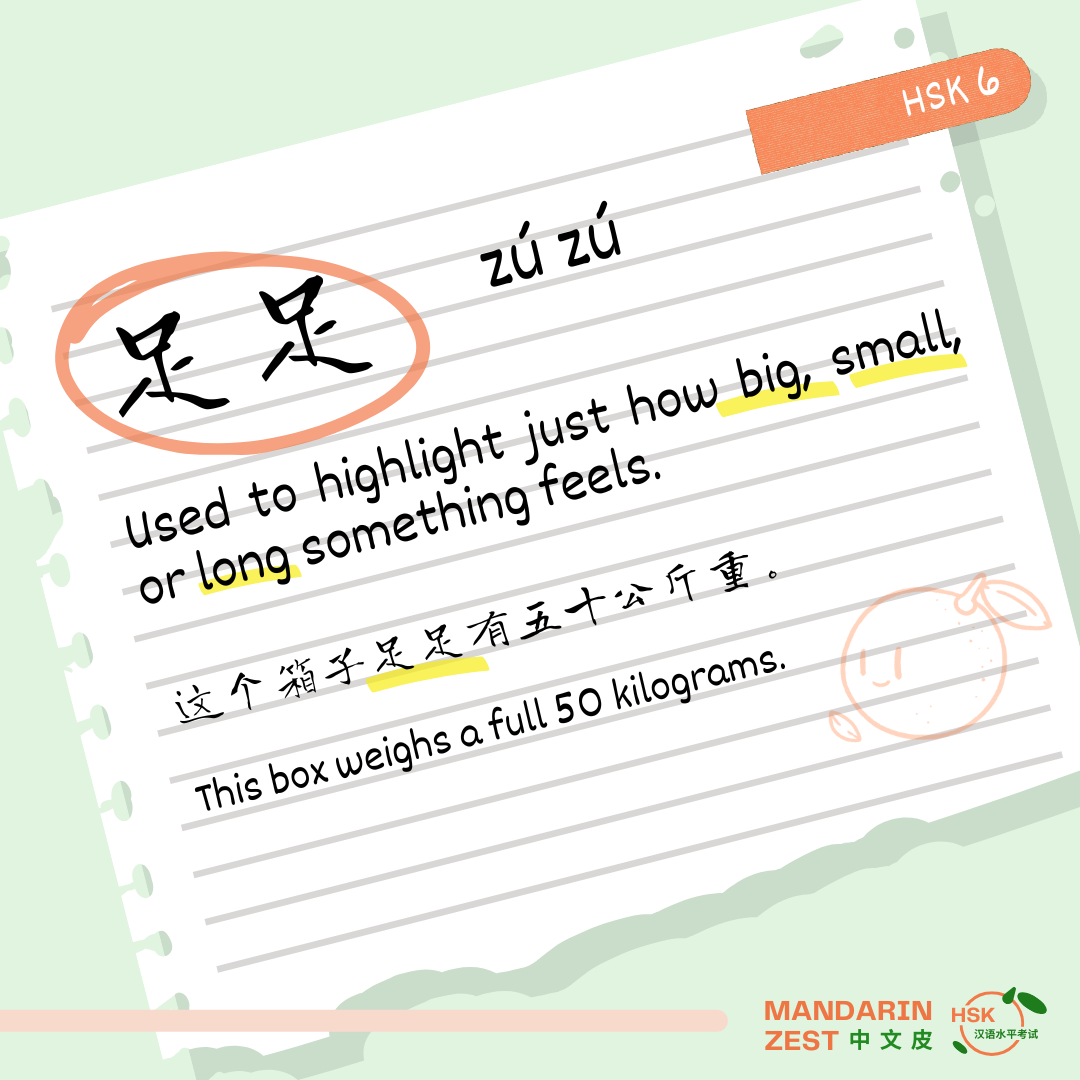In English, we often want to highlight just how big, small, or long something feels. You've probably heard phrases like "he was a full 300 pounds" or "he was all of seven feet tall." In Chinese, there's a similar expression to add this kind of emphasis: 足足 (zúzú).
You can place 足足 either before or after the verb in your sentence. Keep in mind that 足足 is used to stress a number, so always pair it with one.
Sample Sentences
他足足等了三个小时。He waited for a full three hours.
我花了足足一年的时间才完成这个项目。It took me a whole year to finish this project.
这个箱子足足有五十公斤重。This box weighs a full 50 kilograms.
In a Text
昨天我跟朋友去爬山,那座山足足有两千米高。虽然过程很累,但山顶的风景真的让人惊叹。我们足足花了四个小时才爬到山顶,路上还停下来几次休息,欣赏周围的风景和喘口气。到了山顶,风特别大,我的帽子差点被吹走。拍了几张照片后,我们就开始往回走了。等回到山脚下的时候,每个人都筋疲力尽了。我朋友还说他那天足足走了三万步!所以我们毫不犹豫地去吃了一顿丰盛的大餐来犒劳自己。
惊叹 (jīngtàn): to marvel, to be amazed
筋疲力尽 (jīn pí lì jìn): exhausted, worn out
毫不犹豫 (háo bù yóuyù): without hesitation
犒劳 (kàoláo): to reward, to treat (someone)
Yesterday, I went hiking with some friends, and the mountain we climbed was a full 2,000 meters high. Although it was exhausting, the view at the top was truly breathtaking. It took us a full four hours to reach the summit, and we stopped a few times along the way to rest and take in the scenery. When we got to the top, the wind was so strong that my hat almost blew away. After taking a few photos, we started our descent. By the time we made it back down, everyone was completely worn out. One of my friends even said he walked a full 30,000 steps that day! So, we didn’t hesitate to treat ourselves to a big dinner as a reward.





